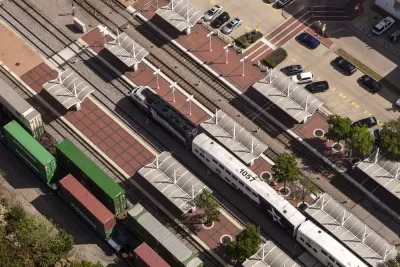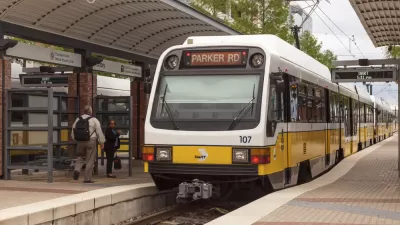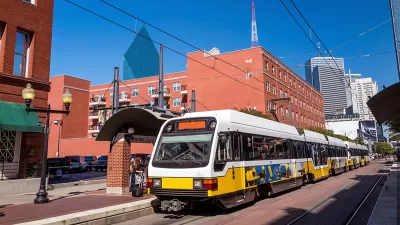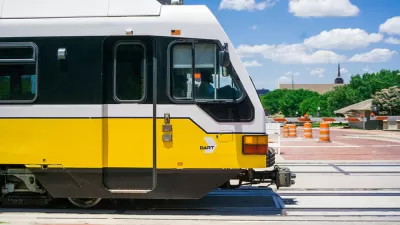Officials would like to speed up the arrival of the Cotton Belt—a planned rail line connecting Dallas to Plano—but that might require sacrificing service.

"A key part of fast-tracking rail service on the Cotton Belt line from DFW International to Plano hinges on lowering construction costs," according to an article by Brandon Formby. "To do that, Dallas Area Rapid Transit is considering single-tracking most of the route instead of double-tracking the entire path."
The project is currently expected to be complete by 2035. Single-tracking the line could speed up project completion to 2025.
Meanwhile, Cotton Belt planners are presented with the following dilemma: "Having two sets of tracks the entire way would allow trains to move in both directions without interfering with each other. But that's more expensive. Having one set is cheaper, but also comes with some operational inflexibility."
FULL STORY: Getting Cotton Belt rail service a decade early could come with some limitations

Maui's Vacation Rental Debate Turns Ugly
Verbal attacks, misinformation campaigns and fistfights plague a high-stakes debate to convert thousands of vacation rentals into long-term housing.

Planetizen Federal Action Tracker
A weekly monitor of how Trump’s orders and actions are impacting planners and planning in America.

In Urban Planning, AI Prompting Could be the New Design Thinking
Creativity has long been key to great urban design. What if we see AI as our new creative partner?

King County Supportive Housing Program Offers Hope for Unhoused Residents
The county is taking a ‘Housing First’ approach that prioritizes getting people into housing, then offering wraparound supportive services.

Researchers Use AI to Get Clearer Picture of US Housing
Analysts are using artificial intelligence to supercharge their research by allowing them to comb through data faster. Though these AI tools can be error prone, they save time and housing researchers are optimistic about the future.

Making Shared Micromobility More Inclusive
Cities and shared mobility system operators can do more to include people with disabilities in planning and operations, per a new report.
Urban Design for Planners 1: Software Tools
This six-course series explores essential urban design concepts using open source software and equips planners with the tools they need to participate fully in the urban design process.
Planning for Universal Design
Learn the tools for implementing Universal Design in planning regulations.
planning NEXT
Appalachian Highlands Housing Partners
Mpact (founded as Rail~Volution)
City of Camden Redevelopment Agency
City of Astoria
City of Portland
City of Laramie





























